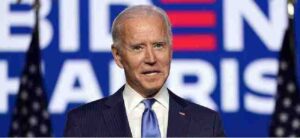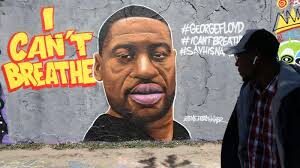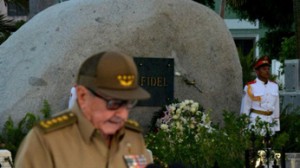French President Francois Hollande has said a Roma girl who was removed from her school bus and deported can return to finish her studies, but that her family cannot.Leonarda Dibrani, 15, was expelled along with her parents and five siblings earlier this month after they lost their battle for asylum in France.
The case has sparked protests by student groups across the country.
A government investigation ruled that the deportation had been legal.
But the report, released on Saturday, said any future such action against school children should be taken outside school hours.
The Dibrani family left Kosovo for France five years ago and were living in Levier, in the Doubs region of eastern France. They cited discrimination in Kosovo as grounds for asylum.
An order for their expulsion was issued after they lost their battle for asylum. After two postponements, it was rescheduled for October and the father, who was detained in a different town, was expelled on 8 October.
Leonarda had stayed at a friend’s overnight so was not at the family home when border police arrived to deport them.
She was instead taken away by police in front of other students while on a field trip. The whole family were flown back to Kosovo that day.
Mr Hollande told French TV: “If she makes a request, because of the circumstances, and because she wants to pursue her schooling in France, a welcome will be extended to her.”
But he stressed that the invitation was to Leonarda alone.
The girl has said she will not return to France without her family.
“I will not abandon my family. I’m not the only one who has to go to school, there are also my brothers and sisters,” the AFP news agency quoted her as saying.
Children ‘begging’
Leonarda’s father, Resat Dibrani, admitted this week that he had lied about the children’s origins in the hope of boosting their asylum application – only he is from Kosovo but his wife and six children were all born in Italy.
The mayor of the Italian town of Fano, where the family lived for several years, said they left after the authorities there threatened to take the children into care.
“The children hardly ever went to school even though he had signed them up. He sent them out begging. They lived in the streets,” Stefano Aguzzi told the AFP news agency.
“We told him that he could not continue living here without paying for anything. We gave him a set of rules for him to be able to stay.”
Mr Aguzzi said that if the family returned, Fano officials would “not welcome them back with open arms” but that would “consider them like we do all the other immigrants”.
Hundreds of French students have staged protests against the deportation, and the manner in which Leonarda was removed, in Paris and other cities.
Much of the anger has been directed at Interior Minister Manuel Valls, previously a popular figure.
The BBC’s Christian Fraser in Paris said Mr Valls has also faced bitter recriminations from within his own party, accused of betraying the principles of the socialist government.
But the government was also warned by the right wing opposition that if it caved into the protests and allowed the family back they would set a dangerous precedent, says our correspondent.
Mr Hollande’s invitation to Leonarda is perhaps the president’s best way out of damaging few days, he adds. – BBC News
Police stop Maldives presidential election from going ahead
Police in the Maldives have stopped a presidential election from going ahead on Saturday, plunging the country into fresh political uncertainty.
Electoral commission head Fuwad Thowfeek said police had entered his offices and were stopping officials distributing election materials.
The Maldives has been in turmoil since ex-President Mohamed Nasheed was ousted in disputed circumstances in 2012.
The latest move has caused alarm among the country’s international partners.
India’s foreign ministry said it was “seriously concerned at attempts to stall the democratic process”.
A US embassy official in Sri Lanka said the failure to hold Saturday’s election “represents a real threat to democracy in Maldives”.
UK Foreign Secretary William Hague said he was “deeply dismayed” and called for the democratic process in the Maldives to be allowed to proceed.
Commonwealth observers in the country also issued an angry statement denying suggestions by the police that they had sought Commonwealth advice before stopping the election.
In a televised speech, Mr Thowfeek said it was a “dark day for democracy”.
Correspondents said the Maldives’ capital, Male, appeared calm early on Saturday, with people still waking up to the news.
Mr Nasheed is standing in the election but the two candidates who trailed behind him in an earlier vote – held last month but then annulled – have been fighting for it not to take place.
Late on Friday, Gasim Ibrahim and Abdulla Yameen sought an injunction against the election at the Supreme Court.
They complained that they hadn’t had time to endorse the registry of voters – a newly introduced requirement.
The court didn’t issue an injunction but nor did it give a clear instruction for the election to go ahead.
Police spokesman Abdulla Nawaz said the election was stopped because the commission did not comply with a court order to have the voters’ list endorsed by all candidates.
But Mr Thowfeek accused them of exceeding their mandate.
“We are very much concerned about what is going on in this country. The Supreme Court decision does not ask police officers to look into the voters’ list and check what is there,” he told reporters.
Last week, the Maldives Supreme Court annulled the result of the first round of the elections held in September because of alleged irregularities.
Mr Nasheed, now the main opposition leader in the Indian Ocean archipelago, won 45% in that poll against 5% for current President Mohamed Waheed.
Mr Waheed has since withdrawn from the election.
Analysts say that if his replacement is not elected by the end of his official term in three weeks, it will spark a constitutional crisis.
Early on Saturday, Mr Thowfeek had announced: “We will hold the election in accordance with the guidelines issued by the Supreme Court.
“The start of the voting may be delayed in some places, but we will allow more time for people to cast their ballots.”
However, within hours police were at the electoral commission and Mr Thowfeek was obliged to call the election off.
“Police personnel in this building stopped us taking anything from here [election offices], so we have no other option except to stop the election today,” he said.
“A new date for elections will be informed later,” he added.
International observers had all praised the conduct of the first-round election, and the Supreme Court’s decision to annul it was condemned by Mr Nasheed’s supporters.
Mr Nasheed came to power in 2008 in the Maldives’ first free elections, but resigned amid violent protests and a mutiny by senior police officers in February 2012. – BBC News




